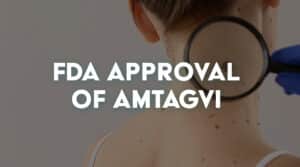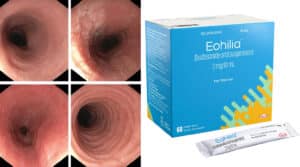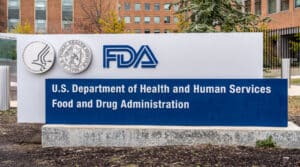| Yes, time to groan, another missive on the 340b program. At least there are some new statistics about the program that should wake up the majority of specialty pharmacies that aren’t skimming the cream off this program unlike a few others. The 340b program has come under the most intense scrutiny that we’ve seen in years. As we mentioned in our last Alert, the full court press by Pharma (against 340b) and the hospital industry, lobbying just as hard to preserve 340b, is fierce. Key findings from the referenced report (Note, it was sponsored by Pharma) show that many retail pharmacies and other third parties have taken advantage of and financially benefited from the 340B program’s contract pharmacy arrangements: — The data showed an average profit margin of 72% on 340B medicines commonly dispensed through contract pharmacies vs. a margin of 22% for non-340B medicines dispensed through independent pharmacies. — 340b covered entities and their contract pharmacies generated an estimated $13 billion in gross profits on 340b purchased medicines in 2018, which represents more than 25% of pharmacies’ and providers’ total profits from dispensing or administering brand medicines. — Following HRSA’s expansion of the contract pharmacy program in March 2010, contract pharmacy participation grew a staggering 4,228% between April 2010 and April 2020. While over 27,000 distinct pharmacies participate in the 340B program today, over half of the 340B profits retained by contract pharmacies are concentrated in just four pharmacy chains – Walgreens, Walmart, CVS Health and Cigna’s Accredo specialty pharmacy. A word on specialty pharmacy participation. Statistics were not available to adequately break out SP revenues by pharmacy type (SP vs. retail/chain). We believe that the lion’s share of specialty prescriptions is being filled by the handful of big box SPs. That’s not surprising as a hospital is likely to select a primary pharmacy partner to consolidate all its 340b transactions into one, more manageable relationship (just like a manufacturer selecting a limited distribution partner for a newly launched drug.) Click here to read the full report , “For-Profit Pharmacy Participation in the 340B Program” __________________________________________________________________________ New Analysis Shows Contract Pharmacies Financially Gain From 340B Program with No Clear Benefit to Patients New Analysis Shows Contract Pharmacies Financially Gain From 340B Program With No Clear Benefit to Patients WASHINGTON, Oct. 8, 2020 /PRNewswire/ — Today, the Berkeley Research Group (BRG) published an analysis of historical trends in 340B contract pharmacy arrangements. The findings conclude that the growth in the number of these arrangements is fueling explosive growth in the program at large and driving the 340B program farther and farther away from its original intended goal of providing discounted medicines to safety-net entities treating uninsured and vulnerable patients. Congress created the 340B program to help safety-net providers, including certain qualifying hospitals and federally funded clinics, access discounts on prescription medicines for low-income or uninsured patients. In 2010, a Health Resources and Services Administration (HRSA) policy opened the door to allow all 340B entities to contract with an unlimited number of for-profit retail pharmacies (e.g., CVS, Walgreens) to dispense 340B medicines. While this policy may have been intended to improve patient access to needed medications, it had the misguided effect of creating an opening that allowed for-profit vendors, pharmacies and pharmacy benefit managers to exploit the program and make a profit on 340B sales – sales intended to benefit low-income and vulnerable patients. “It is clear that contract pharmacies have leveraged market power to drive unprecedented program growth and siphon money out of the program and away from vulnerable patients,” said Stephen J. Ubl, president and chief executive officer of the Pharmaceutical Research and Manufacturers of America (PhRMA). “I urge lawmakers to consider the results of this analysis and pursue policies that ensure the 340B program benefits vulnerable patients rather than just line the pockets of for-profit corporations.” Analysis after analysis shows there is explosive growth in the program, but there is little to no clear evidence that this growth has benefited low-income and vulnerable patients. Even the New England Journal of Medicine found no evidence that expansion of the 340B program has resulted in improved care or lower mortality among low-income patients. These new findings build upon a mounting body of evidence from the Government Accountability Office (GAO) and HHS Office of the Inspector General, which show hospitals are taking advantage of contract pharmacy arrangements to generate additional revenue through 340B without ensuring that low-income patients are benefiting from manufacturer discounts. GAO found that more than half of 340B hospitals surveyed reported that they did not share discounts with patients at their contract pharmacies. OIG found similar evidence, noting some 340B hospitals “do not offer the 340B price to uninsured patients in any of their contract pharmacy arrangements. … [I]f covered entities do not, their uninsured patients pay the full non-340B price for prescriptions filled at contract pharmacies.” To learn more about the 340B program and ways to fix the program, visit PhRMA.org/340B. About PhRMA The Pharmaceutical Research and Manufacturers of America (PhRMA) represents the country’s leading innovative biopharmaceutical research companies, which are devoted to discovering and developing medicines that enable patients to live longer, healthier and more productive lives. Since 2000, PhRMA member companies have invested nearly $1 trillion in the search for new treatments and cures, including an estimated $83 billion in 2019 alone. Source: Pharmaceutical Research and Manufacturers of America (PhRMA) |

FDA Approves Yet Another Cell Tx – Amtagvi
The FDA recently approved yet another – first in class -cellular therapy, Amtagvi (lifileucel) from Iovance Biotherapeutics Inc., indicated for the treatment of adult patients





